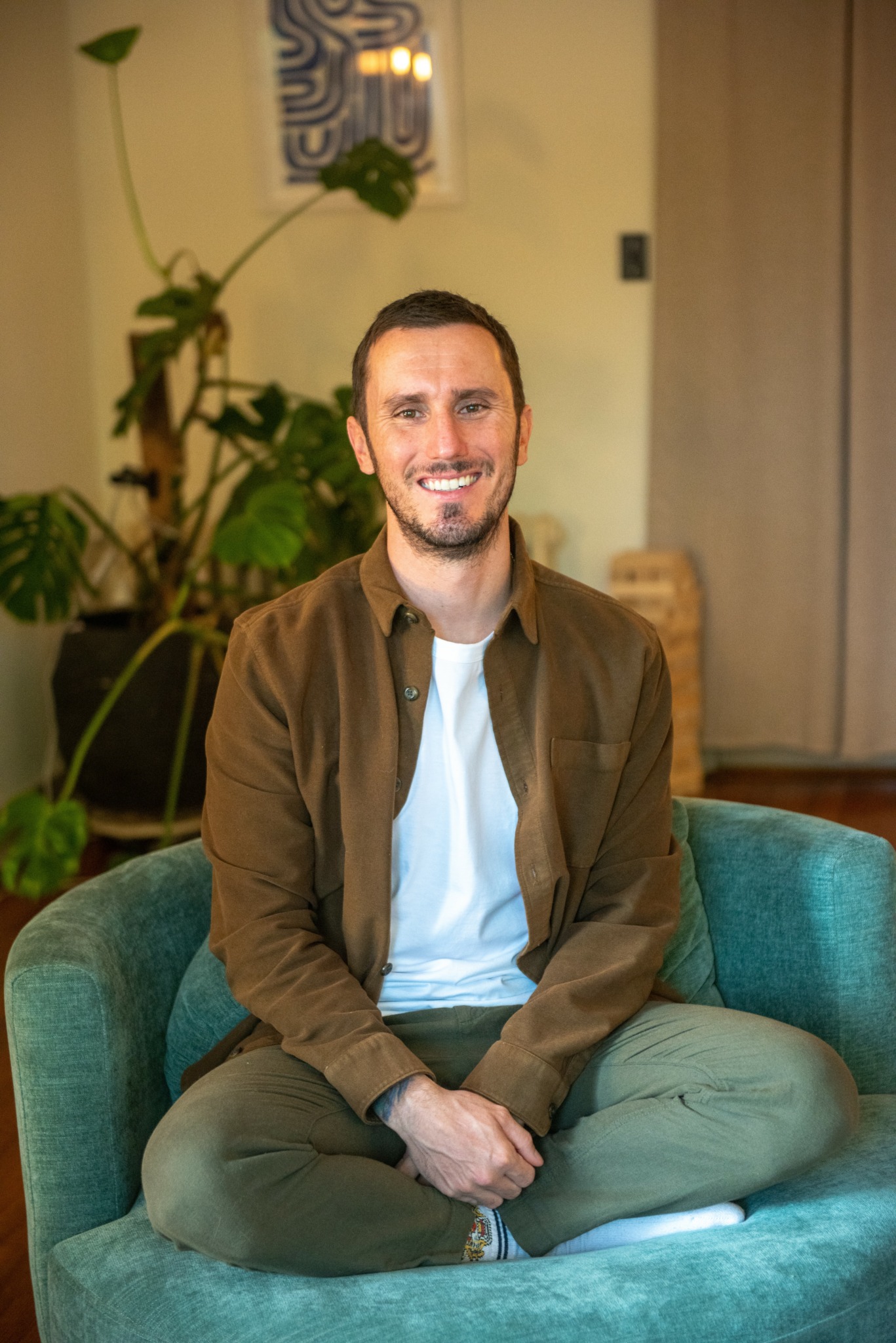We caught up with the brilliant and insightful James Yarrow a few weeks ago and have shared our conversation below.
Hi James, thanks for joining us today. Was there a moment in your career that meaningfully altered your trajectory? If so, we’d love to hear the backstory.
Before I went back to school to become a mental health therapist, I spent ten years as a teacher and a cross-country and track-and-field coach. I loved teaching, but I knew I wanted something different—something more. I just wasn’t sure what “more” meant yet.
Along the way, I had plenty of starts and stops while searching for it. I launched a personal training company called the Kaua‘i Running Club (yes, I was living on Kaua‘i at the time), where I trained individuals, sold merchandise, and even dabbled in life coaching. I traveled to India for over a month to become a Kundalini Yoga teacher—a life-changing experience that helped me heal early childhood trauma and deepen my relationship with myself and with my girlfriend at the time (now my wife, Casey).
When we returned to the States, I felt inspired and driven to help others. I threw myself into yoga teaching, promoting classes on social media, starting a podcast, and building a website. I loved the work, but the business never gained real traction. Still searching, I even enrolled in acupuncture college, where I earned straight A’s and loved the material, but again, it wasn’t the right fit.
For years, those false starts felt like wasted time and money. I felt lost. But that changed when I began pursuing my LMSW degree. From the moment I stepped into my internships, I knew I’d found my path. Building my own practice confirmed it. Suddenly, every twist and turn made sense. I wasn’t living in my own trauma anymore. I understood how to market myself—and, just as importantly, what felt inauthentic. I knew I didn’t want to rely on social media to define my work.
Each detour had been preparing me, giving me tools I now use every day as a therapist and business owner. What once felt like missteps were actually the foundation for everything I do today.
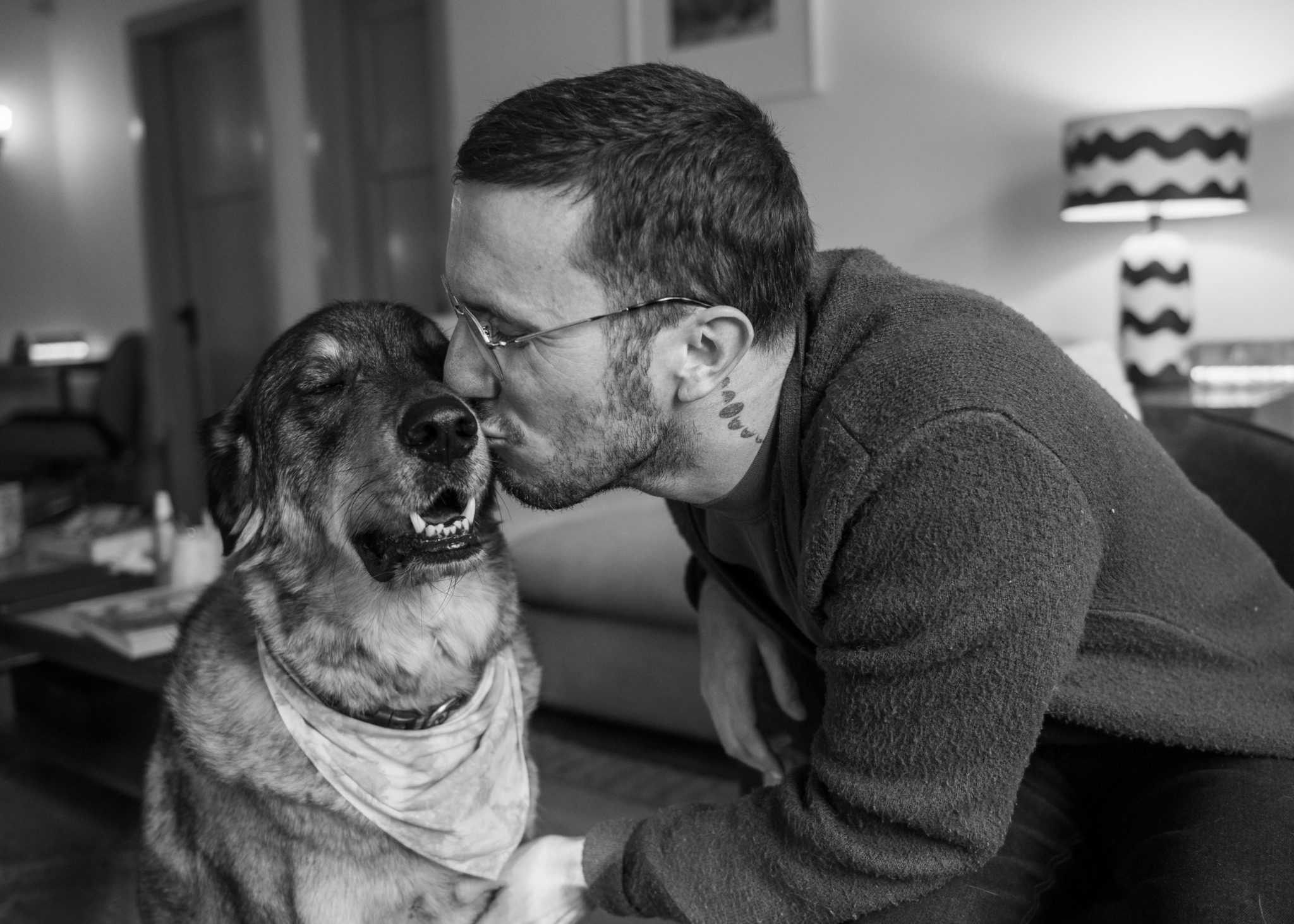
Great, appreciate you sharing that with us. Before we ask you to share more of your insights, can you take a moment to introduce yourself and how you got to where you are today to our readers.
At Blackbird Mental Health, we believe that therapy is first and foremost about the relationship. No technique or theory matters more than the connection between therapist and client. My training includes EMDR and a variety of evidence-based modalities, and I draw from my background in mindfulness and yoga to help people feel grounded in the present moment. But every session begins with trust, curiosity, and the understanding that healing grows out of a real human bond.
I’ve had the privilege of working with a wide range of individuals—people of different ages, backgrounds, and life experiences. That variety keeps me excited and engaged every day. Whether someone is navigating trauma, anxiety, grief, or a major life transition, I meet them where they are and help them discover their own capacity for growth and change.
Building Blackbird has also been its own creative adventure. I genuinely enjoy the business side of this work—shaping a brand that reflects both professionalism and heart, making thoughtful choices about how to reach people, and creating a practice that feels authentic to me and welcoming to clients. Watching the practice grow has been as rewarding as the clinical work itself.
What I’m most proud of is the space I’ve created for clients to feel seen, supported, and safe enough to do deep work. Every session is a reminder that healing is possible, and that the right relationship can help people move from surviving to truly living.
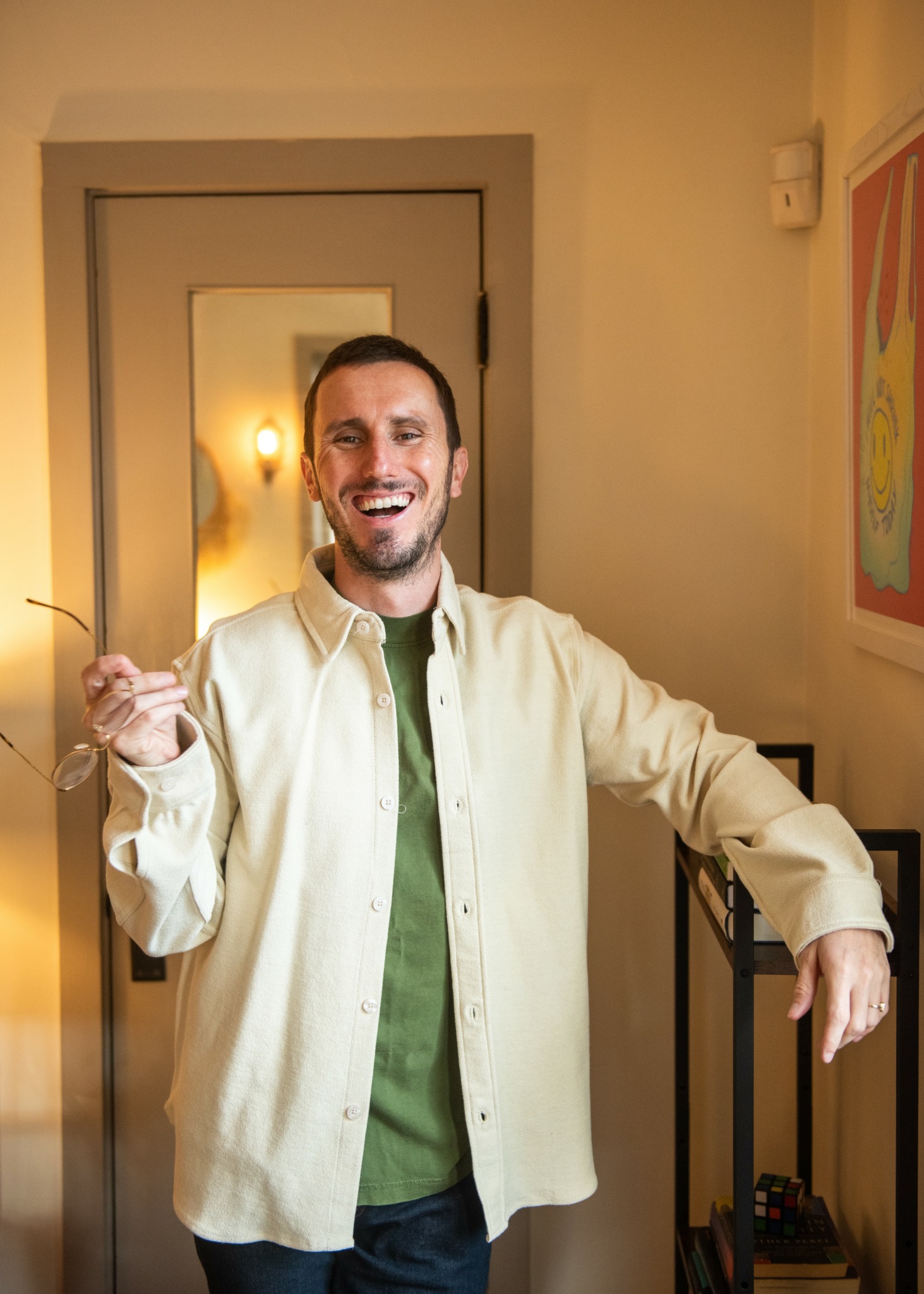
Training and knowledge matter of course, but beyond that what do you think matters most in terms of succeeding in your field?
Other than training and clinical knowledge, the most important thing in this field is that a therapist has done their own work. We’re human too—we have our own histories, our own traumas, and our own struggles. To sit with someone else’s pain, we have to have faced and processed our own. There’s no single path to that healing, but it’s crucial. When we’ve done the work ourselves, we can hold space for clients in a way that quietly says, me too, I understand, without ever having to say the words.
This profession also holds us accountable in a beautiful way. It reminds me daily that I need to care for myself if I want to care for others. For me, that means maintaining daily practices like mindfulness, staying active, nurturing my marriage, staying connected to my community, and making time for fun and joy. I will always make mistakes and remain human, but those routines keep me grounded and present.
Success as a therapist isn’t just about what you know—it’s about who you are and how you live. Doing the inner work allows you to show up fully for your clients and create the kind of relationship where real healing can happen.
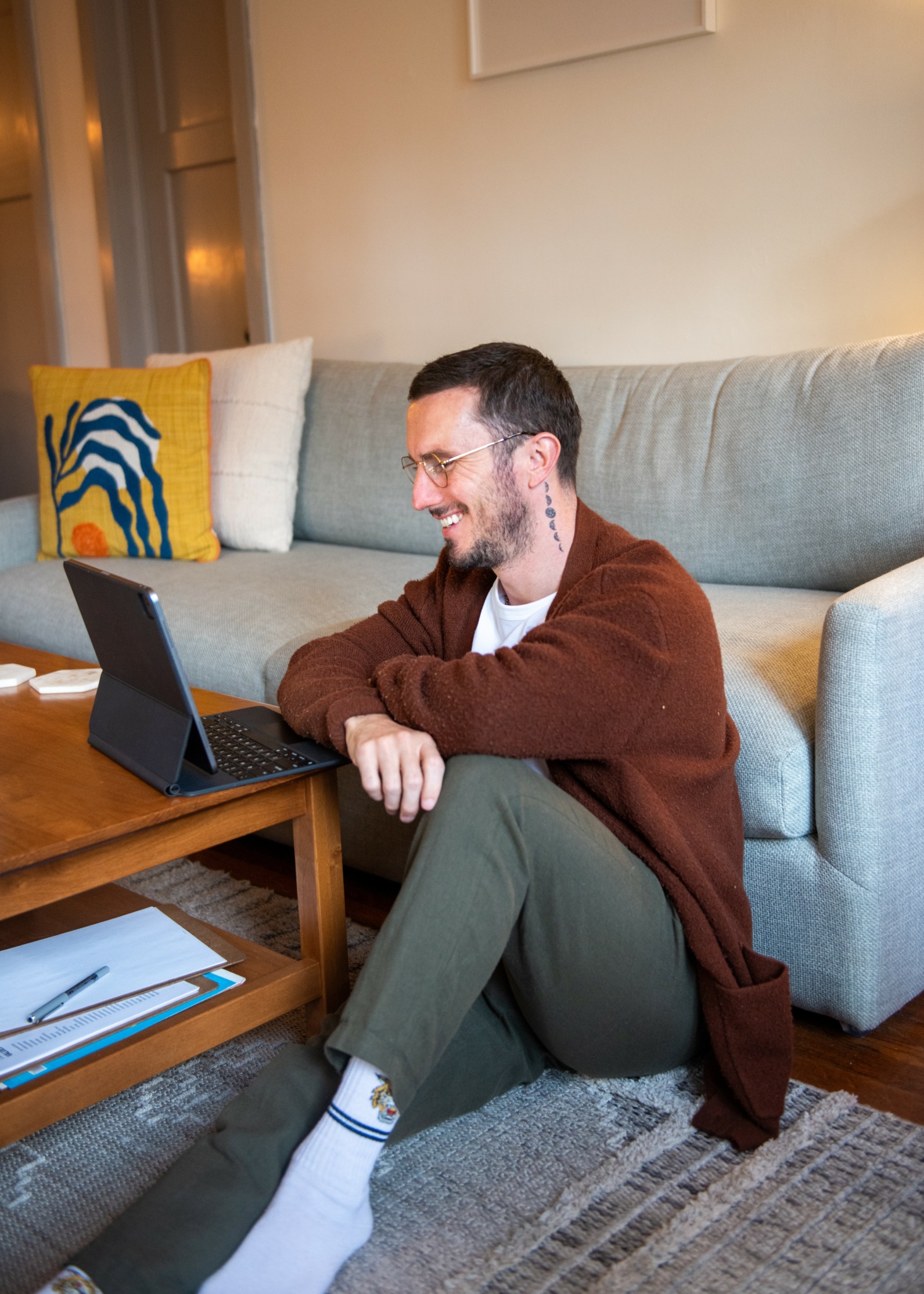
What’s a lesson you had to unlearn and what’s the backstory?
After returning from my time in India, I felt like I had all the answers. I was inspired and eager to help—if I’m honest, I wanted to save people and lift them out of their misery. Over time, I had to learn a hard but essential truth: people don’t want to be saved, and even more importantly, they are each on their own unique journey, moving at their own pace. My job isn’t to pull them forward. It’s to meet them exactly where they are and honor the timing of their process.
Trying to take someone too far, too fast isn’t just unhelpful—it can actually be harmful. Learning this shifted everything about how I practice. I’ve also come to accept that I’m not the right therapist for everyone, and that’s okay. I frequently refer clients or potential clients to trusted colleagues when I believe they might be a better fit.
This lesson hasn’t only shaped my work—it’s influenced my life. In my marriage, friendships, and community, I’ve learned to let people grow at their own pace instead of rushing to fix or rescue them. It’s a daily reminder to stay present, to listen more than I direct, and to trust the natural unfolding of relationships.
Today, my focus is on empowering clients to connect with their own inner strength, their communities, and their personal resources. My role is to help them build tools they can carry long after our work together ends, because true healing doesn’t come from relying on a therapist—it comes from within. That realization has been one of the most freeing and sustaining lessons of my career and my life.
Contact Info:
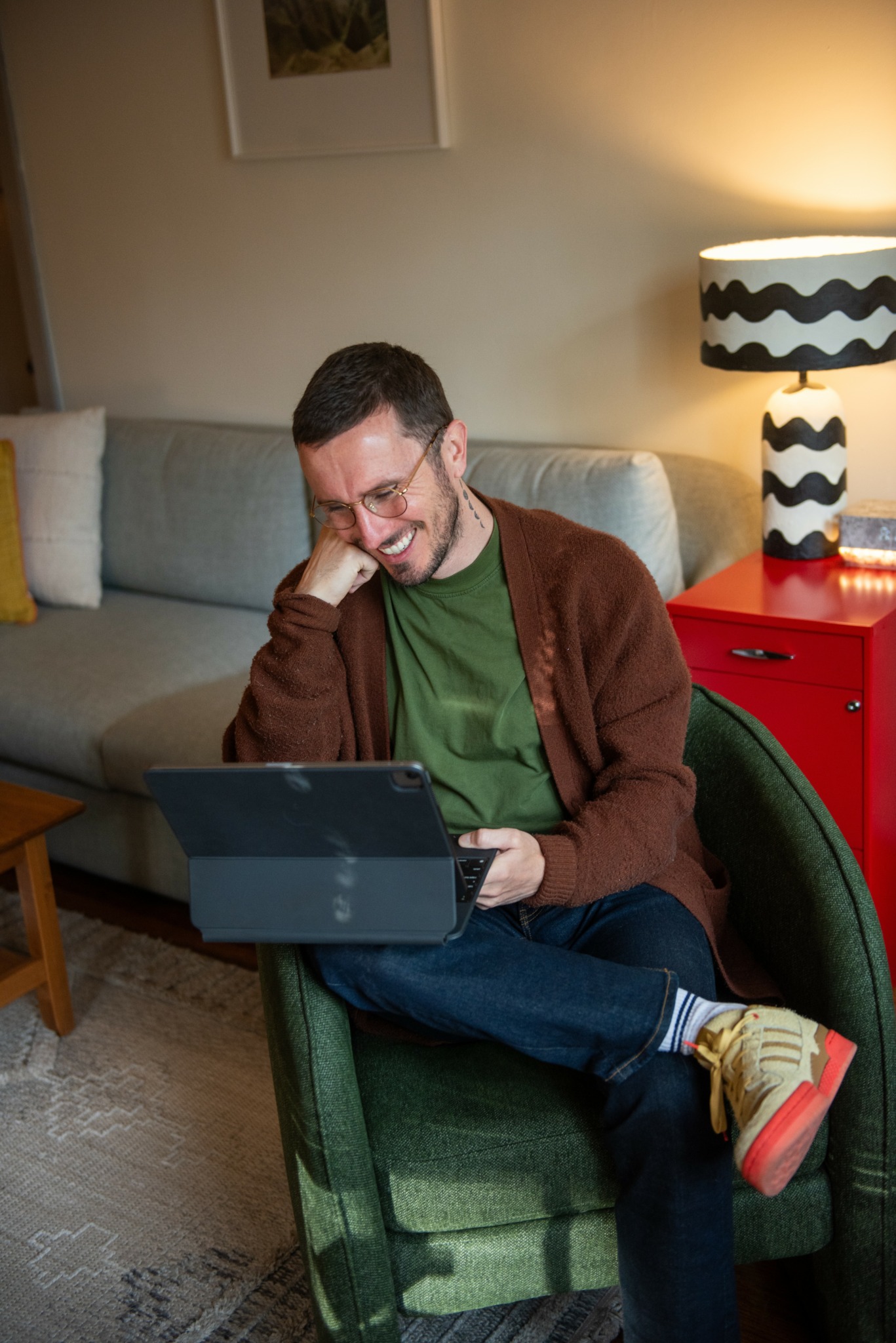
Image Credits
Casey Yarrow


